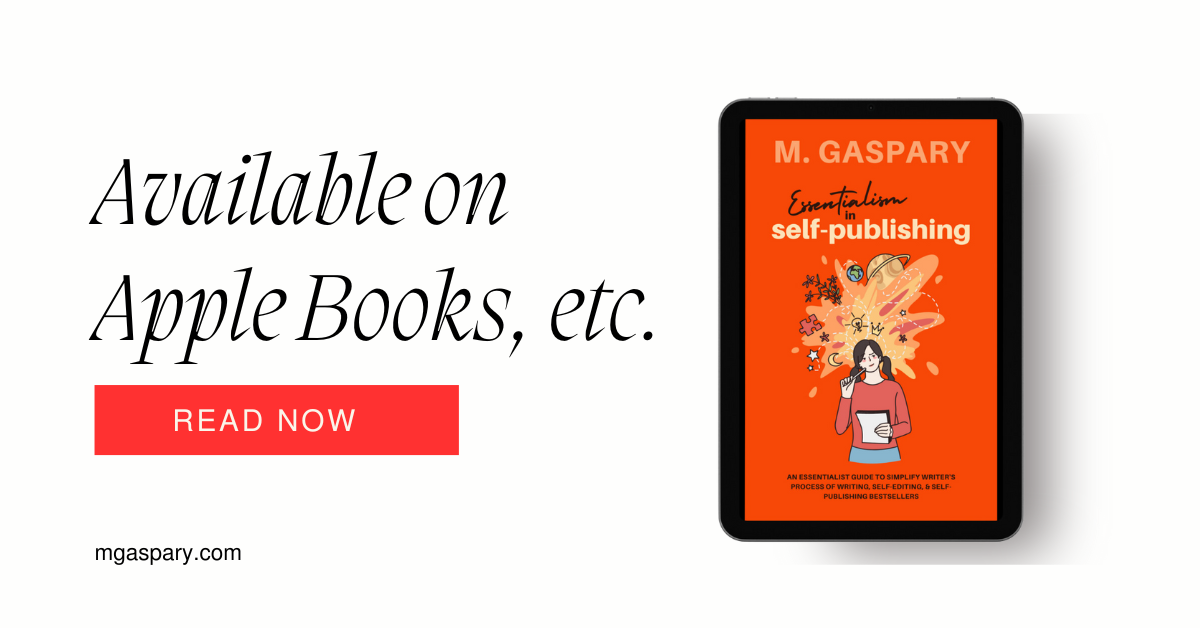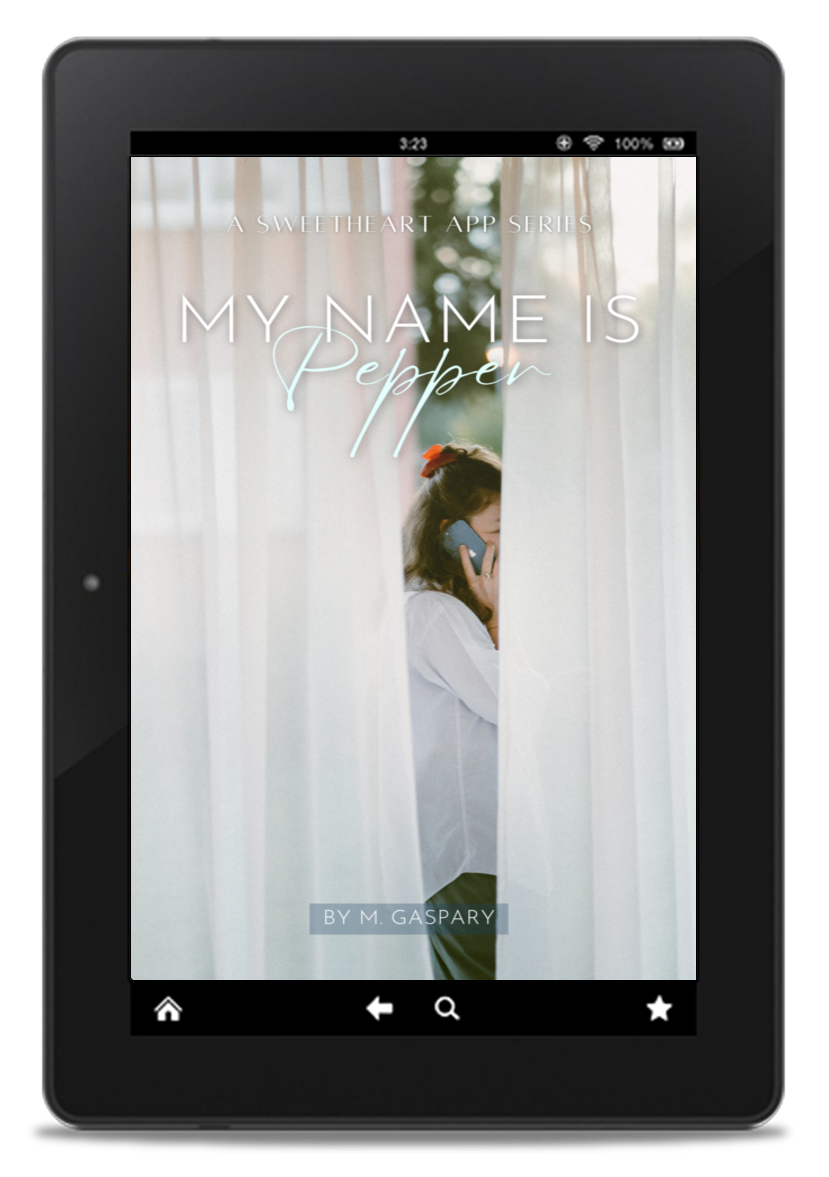Writing your first book is the most courageous you would do besides confessing your feelings to your first love.
It’s nerve-wracking, leaving you sleepless. But once done, it leaves a space in your heart and mind, followed by other sleepless nights due to anxiety.
Writing your first book sounds daunting. If not, the scariest moment you couldn’t ever forget. Writing itself is tedious work.
The whole process is 100% hard work. Ultimately, it feels rewarding, especially after you type in the last word of your first novel.
In this post, I don’t want to roam around the bush, and I’ll share the exact steps I did and learn how to write your first book within 30 days.
Table of Contents
- My First Book Writing Experience
- How to Write Your First Book in 30 Days
- Learning How to Write Your First Book Tips
- Final Thoughts

My First Book Writing Experience
Staring at the blank page was the most daunting part of learning how to write a book, wondering what words I should type first. It happened on the 21st day of August this year. The time I wrote Accidental Quest Book 1 of the Trilogy.
At that time, I promised myself I should finish the book no matter what within 30 days. Typically, even great authors like Stephen King write a book for around 60 days versus 30 days to a nobody like me.
It’s an insane plan. Thank God I made it. I started scribbling on a word processor that day and continued for 8 hours. Sometimes 10. It depends on how much I can write that day. And continue the next chapter the next day.
The unorganized system has led me to intense planning, from the premise to the plot itself is planned.
The system went on for 30 days – non-stop planning, particularly on the plot, the details I had to review to ensure my characters were great (in my eyes) and revise, revise, revise.
After a month, I finished the first book on September 24 with 100,000 words. Even after my deadline, I continued revising. I read books about self-editing – a lot of them – to improve my work.
So, I could say the time I finished, I saw my thick printed manuscript in front of my eyes, and I was teary-eyed.
This is what I want to share with you. I want you to experience how it feels to finish your first book and feel proud of the result. Despite the fear, think of it as a challenge. Can you do it? Can you write a novel?
Of course, you can. Everybody can. It may sound scary today. Let me be blunt with you. Forget that fear and step up. Instead, prove that you can stand up against your limits by starting that book you want to write.
To how much your determination, hard work, and persistence last en route to your first published work.
Your first book.

How to Write Your First Book in 30 Days
I started my writing journey as a pantser, so I sat before my laptop and started writing without plans. I don’t deny that humble beginning.
Without index cards. Without planning the characters. Nothing but my guts and skill at the tip of my fingers. This method works for some, but sometimes for me. But in the long run, I’m not too fond of the idea of not having advanced planning for the plot.
Sometime in 2017, I wrote my first Filipino Historical Fiction, 30 Days With Mr. Weirdo, for my readers on Wattpad. You can read it here.
With a significant promise of weekly updates, the pressure became unbearable, leading to my first writing chaos. I got lost in between and had no idea how to move on to the next chapter.
That’s when I tried to create a system for my writing. The unorganized system has led me to intense planning, from the premise to the plot itself is planned.
Step 1: Write a strong premise.
The premise is the overall plot.
It’s sometimes in one or two sentences containing the entire story. It’s a quick synopsis. Within these sentences, you, as the author, must create a solid and compelling plot.
If you don’t see your story as impressive in your premise, you must keep revising until you craft the best one.
It’s just 1 to 2 sentences. Yet it requires so much of your time. It took me around 2 weeks to finalize my premise after countless revisions.
Why? There are many factors to consider to create a compelling story.
| Pro Tip: Give your characters imperfections and challenges to the limits to keep the story going. If not, you’re losing the interest of your readers in the long run. |
Here’s mine in my book Accidental Quest (Book 1):
A not-so-brilliant college student, forced by the academic requirement to pass and graduate, decodes the mystery behind the infamous murderer’s life twenty years ago through hidden messages in an old book.
So, how do you write your premise?
- You have to know the core structure of your story. What is it about? Who are your character and his/her limitations? Strengths and weaknesses? What journey awaits them? Who is responsible for their difficulties?
- You have to have a compelling story. For me, a story is a colorful world of flawed characters affecting their life and others. But their desire to achieve a particular thing lets them overcome these imperfections.
- You follow the template. It follows with the questions: What, Who, Why, Where, & How. Like journalism, you need clarity for your story. As an author, you need to see the whole story by looking at it.
Let’s take mine as an example.
Who is the main character? = a not-so-brilliant college student
What is her problem? = She fears she might fail in her Philosophy class and wouldn’t graduate soon.
When does it take place? = A month before graduation day (around February)
Where would the adventure take her? = She learns about the notorious assassin’s life twenty years ago.
How did the adventure open doors for her? = She decodes the hidden messages in an old book.
(WHO) A not-so-brilliant college student, (WHAT) forced by the academic requirement to pass and graduate (implied WHERE & HOW) decodes the mystery behind the infamous murderer’s life twenty years ago by hidden messages in an old book.
Step 2: Place important scenes on index cards.
I had around 15 index cards for my first book with separate scenes written on top and the details in bullets. I didn’t mix them up.
I have to separate each scene to avoid problems with arranging which scene goes next. In each index card, I also place the dialogue or at least the critical points that the character/s will say in a conversation.
| Pro Tip: As an author, you can imagine which scenes or beats you’d like to incorporate into your story. However, if you don’t keep this strategy, you’ll get lost eventually, especially if you’re caught in a Middle Act crisis most writers find themselves in when unprepared. |
I’ve been there, and it was my mistake. I thought avoiding this step would make my writing more accessible and faster, only to find out it wasn’t.
Step 3: Create a novel outline.
A novel outline is the skeleton of every fiction you’re writing. This is an essential tool every author should have, or else you’re messing up your writing. I know it felt because I’ve been there.
To do that, you can create the novel outline in many ways. I have the index cards with me (near the laptop) while I type in the chapter-to-chapter outline.
Yes, it’s done per chapter. I’ve written a more detailed post about this, which you can read here.
| Pro Tip: A novel outline is the skeleton of every fiction you write. Thus, every author must write a novel outline to keep the story organized as much as possible. |
With index cards, I can easily choose which scenes go first and which are next. In the outline, I place the main thought of the chapter or a general idea of what will happen in that chapter. For example,
MAIN SCENE: Giovanni meets Alexandra and confesses his love.
- Detail 1: He invites her to dinner, recalling their friendship journey.
- Detail 2: Alexandra shares her complicated past, including her hurdle with her stepfather, Monsour.
Most of the time, I include conversations and bullet points indicating the necessary object or action the character/s must have or do as the highlight of the chapter.
This is the first page of my novel outline, containing the essential details I think the novel needs.
Step 4: Set your writing time.
This is very important to me. When I wrote Accidental Quest last August, I had set my writing time from 12 noon to eight in the evening. It sounds like a lot of time. Yes, it does.
| Pro Tip: I love writing my stories. So, writing stories that long isn’t a big deal. At that time, I didn’t have a full-time day job. It’s easy. |
Right now, it’s tough with a day job (8-9 hours per day) + writing a chapter before bed, sometimes after I wake up, or in between.
If you think it’s not easy, check out my post here. I wrote how I finished my books (more than 30 days) while working full-time and managing household chores.
It’s tiresome, but it’s an experience worth your while.
Albeit tiring, writing my story motivates me to end my day right. It drives me to finish my work efficiently, ensuring I can give ample time to continue scribbling the next chapter.
I feel responsible for creating my characters’ life stories real and published so everyone can read them.
Step 5: Set your writing pace to 1,500- to 2,000-word count daily.
This isn’t a typical word count per chapter of a novel. For most writers, especially those with day jobs like me, it’s the best we can give. After that, our brain cells surrender grinding. *sprawls*
What I do is set 1 to 2 hours of writing time per day. It doesn’t matter if it’s the morning or evening as long as I can write something during the day. Small progress counts, right?
I ensure I’m consistent with my writing page to finish my book on time, like the novel I finished just a few weeks ago. It’s a gay romance entitled The Rival (118,000+ reads on Wattpad). You can read the novel here.
I started the book in October and finished the first draft of 60,000+ words in the same month. For sure, further revisions will happen in the next few months.
| Pro Tip: It’s best to leave 1 month of rest before you start editing to keep your mind fresh. Don’t start editing right after you finish your book. |

Learning How to Write Your First Book Tips
- Use Dabble for your writing convenience. I’m not recommending it because I’m paid. I’m no affiliate. It’s an application intended to create a focused writing system. You can download the application I use every day for my novels. Click here.
- Know why you want to publish your first book so freaking bad. This is very important. Why would you make a risky move without knowing your end goal? Writing a book is hard work. It’s no BS. It’s a demanding path you have to go through. If your reasons weren’t strong enough, how can you withstand the challenges in the process?
- Be consistent. Regardless if you write short today or long the next day, it doesn’t matter. To me, little progress is progress. Just write every day. Enjoy the process.
- Know your characters. Don’t limit them on the page. Make them real, alive. See them. Know them. Feel them. Why are they acting like they are? Villainous? Desperate? What do they want? You know what, my characters in Accidental Quest are real to me. They’re phenomenal.
- Write in the same spot where you got the inspiration. Where were you when you had the a-ha moment? Where were you writing most of the time? Were you at the dining table when you first thought of your plot? If so, sit at the same spot and write until you finish the book. I wrote my book in my sister’s bedroom for one month.
- Above all, fall in love with your novel. This is the best tip I can give you. Don’t just write that story you have in mind simply because they’re trendy. Find the reason why you have to write it. And I hope, when you’re writing your first book, it’s out of love.
Final Thoughts
Overall, writing your first book is quite tedious work. It requires a lot of your time, effort, and emotions. Based on my experience, learning how to write your first book is possible.
But here’s what you have to remember. No matter how much you plan it this way or that way, you often find yourself stepping back and perhaps overwhelmed because of new ideas coming in.
Nonetheless, writing your first book is worth your while, though it takes effort. An experience where you get the chance to see your characters evolve and become a reality – from an idea in your head to a printed page where many people can read and know them personally.
Now, it’s your turn. Are you willing to take on the challenge? It’s up to you.
If you like this post, share it with your friends and family. Have something to share? Feel free to leave your thoughts in the comment section below. 🙂



Leave a Reply